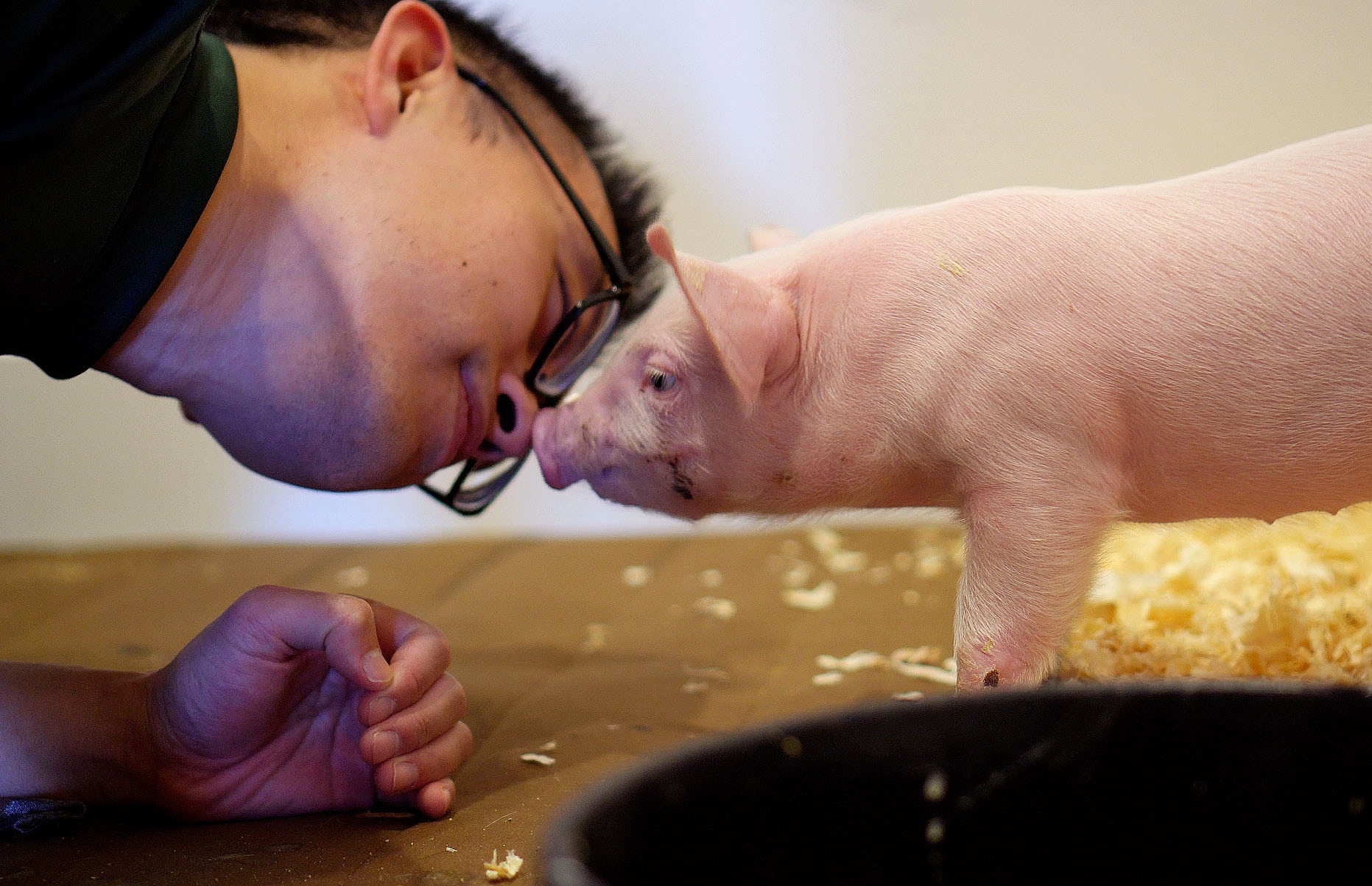The finish line on my trip to pescetarianism: The damn Intercept!

My wife went pescetarian a few years ago. Actually, she hovers now on the brink of pure vegetarianism, but is unwilling to abandon the occasional shrimp or salmon dish. Since I do much of the cooking, I adopted her diet more or less. But, especially when we go out to eat, I indulge in a steak or burger medium rare. My repeated rationale for this is evolutionary biology. Hey, we've been evolving for millions of years (as I'm unpersuaded by the creationist argument), and our ancestors likely ate pretty much anything they could get their opposable thumbs around.
The popularity of the paleo diet supports this hypothesis, obviously. Unfortunately, I don't think my wife was ever overly convinced by this argument.
Her conviction has little to do with evolution vs. creationism. Since this whole pescetarian/vegetarian thing entered our lives, she's mentioned something called "factory farming" a few times. I gathered it had something to do with inhumane conditions involving the butchering of cattle and pigs, and who knows what other four-legged entree's-on-the-hoof.
I was under the impression that Temple Grandin had taken care of that situation. Apparently I was wrong.
Then, yesterday I think, I clicked on a link in my email newsletter from The Intercept and ended up at this sunny little piece of journalism.
It was about how the FBI is looking into the theft of two piglets from Smithfield Farms. Remember that name: Smithfield Farms. Here's an excerpt from the article:
This single Smithfield Foods farm breeds and then slaughters more than 1 million pigs each year. One of the odd aspects of animal mistreatment in the U.S. is that species regarded as more intelligent and emotionally complex — dogs, dolphins, cats, primates — generally receive more public concern and more legal protection. Yet pigs – among the planet’s most intelligent, social, and emotionally complicated species, capable of great joy, play, love, connection, suffering and pain, at least on a par with dogs — receive almost no protections, and are subject to savage systematic abuse by U.S. factory farms.
The article includes images and videos that are horrifying and heartwarming in turn: horrifying in the treatment of pigs at this facility; heartwarming in how the activists who captured the video and allegedly perpetrated the piglet heist brought the little brutalized beasties back from the brink.
So, I'm off bacon now. And, frankly, the steaks and burgers are a little less tempting, also. One unexpected consequence of the article was a small addition to my growing disgust with government in that I'd think the FBI would have better things to do with our tax money than to implement this piggiehunt.
I guess that makes me a pescetarian. Now I have to worry about some nosy investigative journalist poking around into factory farming of fish. I have to stop clicking on these newsletter links, I guess. And then there was this recent discovery that octopuses live in complex communities. I've long had the suspicion that the average octopus may be brighter than many people, and probably would be quite hard to find by the FBI or any other law enforcement agency.
There are interesting data out there on the octopus. As smart as they are, however, I doubt they know anything about how terrible the conditions are at Smithfield Farms.